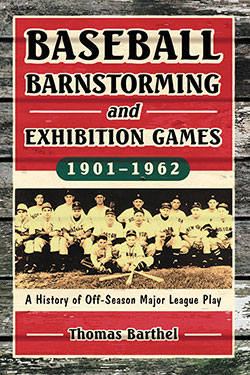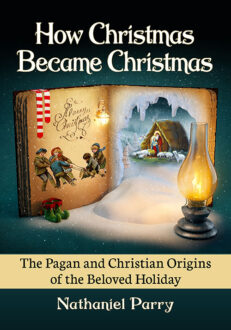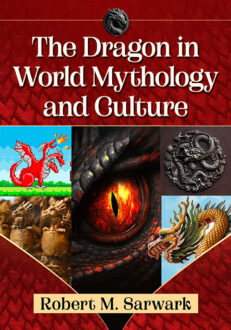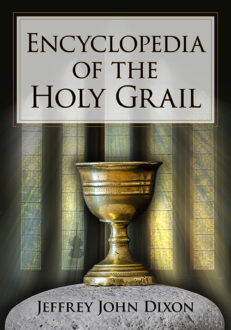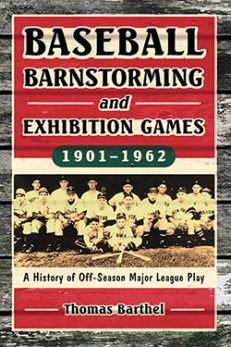Baseball Barnstorming and Exhibition Games, 1901–1962
A History of Off-Season Major League Play
$29.95
In stock
About the Book
Until 1947, professional ball players were paid only from opening day to season’s end. Even during the season, a lot of their expenses came out of their own pockets. Even the best-paid players had trouble making ends meet. One answer to their money woes was barnstorming—tours out of season. Cities lacking their own major league teams were happy to host big-league players for such events, as well as for special exhibition games whose proceeds sometimes went to local charities.
Here is a history of barnstorming and exhibition games from 1901 (when both of the two current major leagues began operating) through 1962 (when a team led by Willie Mays was unsuccessful in its attempt at a tour, signaling an end to true barnstorming). Decade by decade, it covers the teams, the games, and the players for a detailed look at how barnstorming and exhibition brought big-league baseball to the backyard ballparks of America.
About the Author(s)
Bibliographic Details
Thomas Barthel
Format: softcover (6 x 9)
Pages: 283
Bibliographic Info: 22 photos, appendices, bibliography, index
Copyright Date: 2007
pISBN: 978-0-7864-2811-3
eISBN: 978-1-4766-0664-4
Imprint: McFarland
Table of Contents
Acknowledgments vi
Preface 1
Introduction: The 200 Days 3
Prologue 13
1. Barnstorming Tours and Exhibition Games, 1901–1909 21
2. Barnstorming Tours and Exhibition Games, 1910–1919 55
3. Barnstorming Tours and Exhibition Games, 1920–1929 89
4. Barnstorming Tours and Exhibition Games, 1930–1939 117
5. Barnstorming Tours and Exhibition Games, 1940–1949 143
6. Barnstorming Tours and Exhibition Games, 1950–1962 164
Afterword 201
Appendix A: Major Leaguers Appearing in Exhibition Games 203
Appendix B: Exhibition Games, 1901–1962 209
Appendix C: Major Leaguers Appearing in Barnstorming Games 213
Appendix D: Barnstorming Games, 1901–1962 229
Appendix E: Letter from the Commissioner 251
Bibliography 253
Index 259
Book Reviews & Awards
“informative…fills huge voids in baseball information…a terrific research job”—Sports Collectors Digest.

